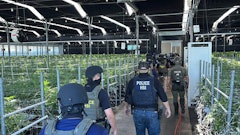
New York Gov. Andrew Cuomo is renewing his push for cannabis legalization in 2021, and also plans to issue new CBD rules in the state, according to a NYup.com report.
The news, first reported by Marijuana Moment, was revealed during a recent interview between Axel Bernabe, one of Cuomo’s top advisers on cannabis, and David Culver, an executive with Canopy Growth.
Bernabe told Culver that Cuomo plans to include adult-use cannabis legalization in New York’s 2021-2022 budget, which takes effect April 1, NYup.com reported.
Bernabe also revealed that Cuomo plans to issue new CBD rules to regulate how the compound is manufactured and sold in the state, according to the news outlet, including how it can be infused into food and beverages, which is currently prohibited.
Cuomo called for adult-use cannabis legalization in 2019 and 2020, with a legalization bill stalling in the state legislature in 2019 and a separate legalization proposal cut from the state budget earlier this year.
Instead, Cuomo signed a cannabis decriminalization bill into law in 2019 and met with the governors of New Jersey, Connecticut and Pennsylvania last fall to discuss a coordinated adult-use legalization plan.
Cuomo also signed a hemp extract bill into law last year to create a regulatory framework for growing and processing the crop, NYup.com reported, although the legislation did not include the regulation of CBD in food or beverages.
“We’re leaning towards doing food and beverages,” Bernabe told Culver, adding that the rules under consideration would likely limit products to no more than 25 mg of CBD per serving, according to NYup.com.
























